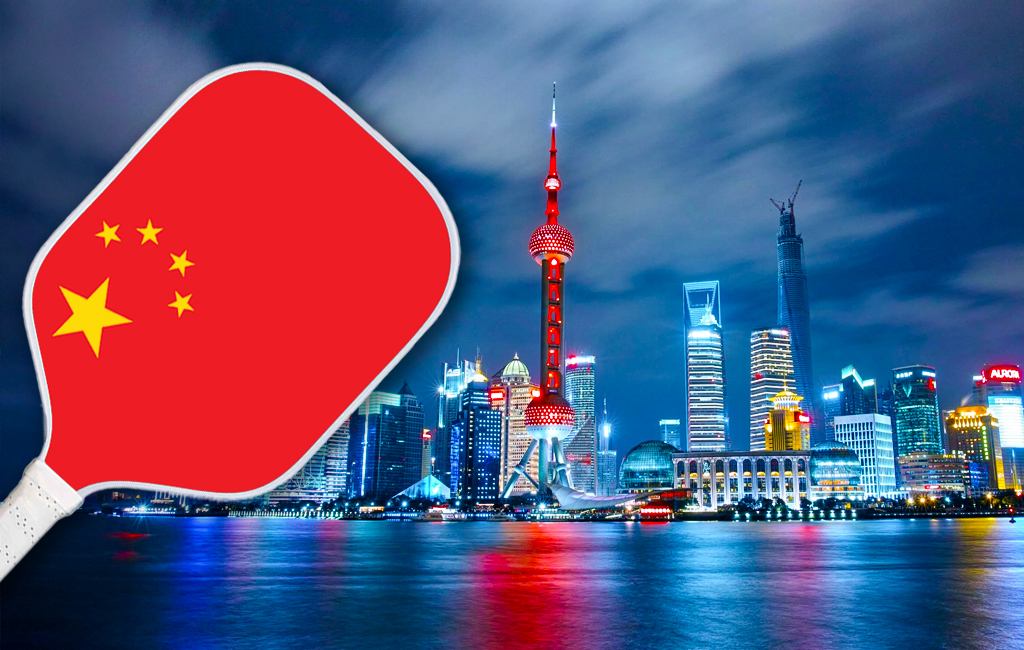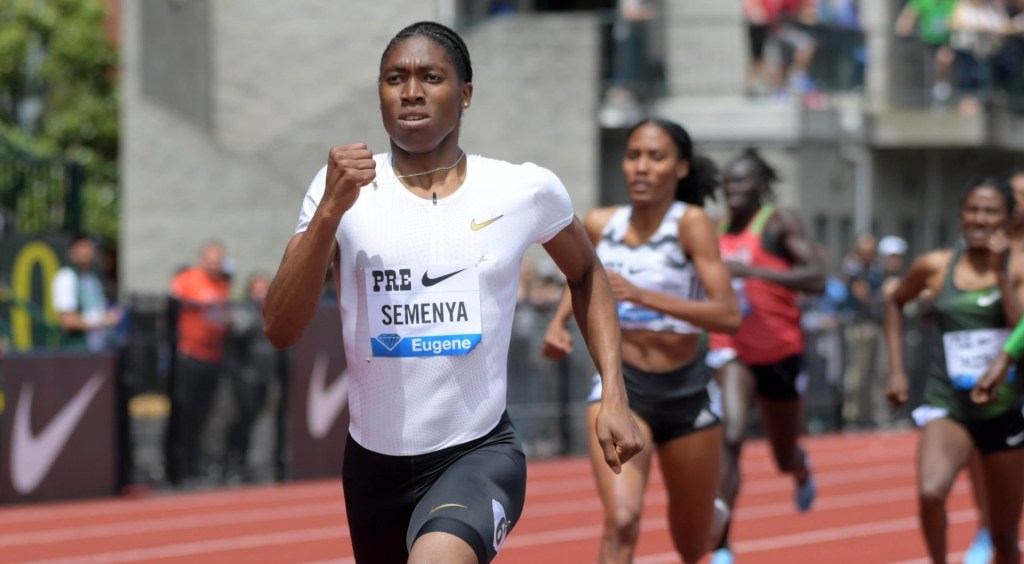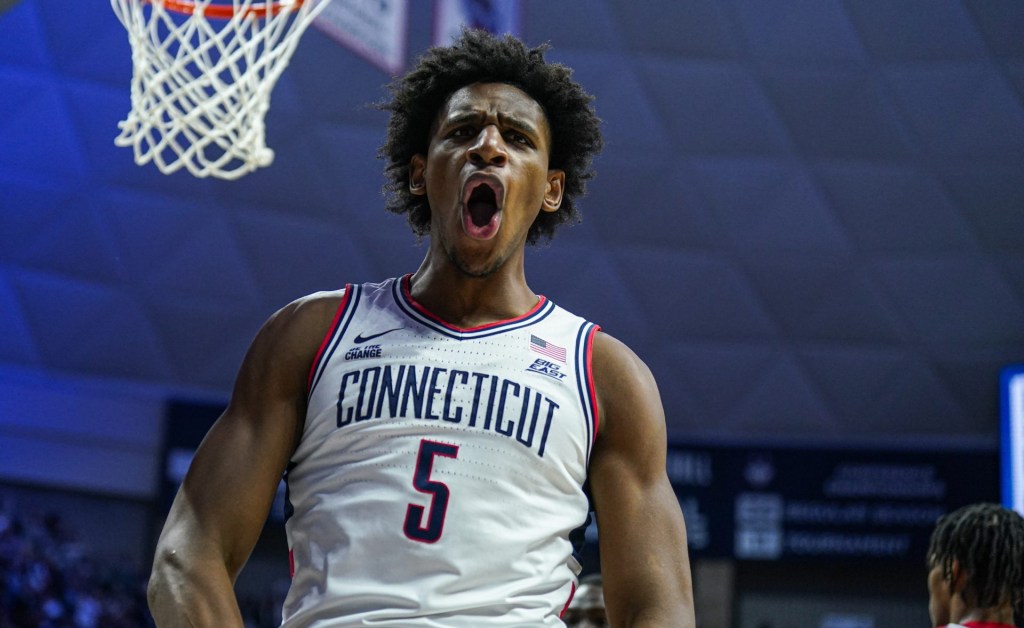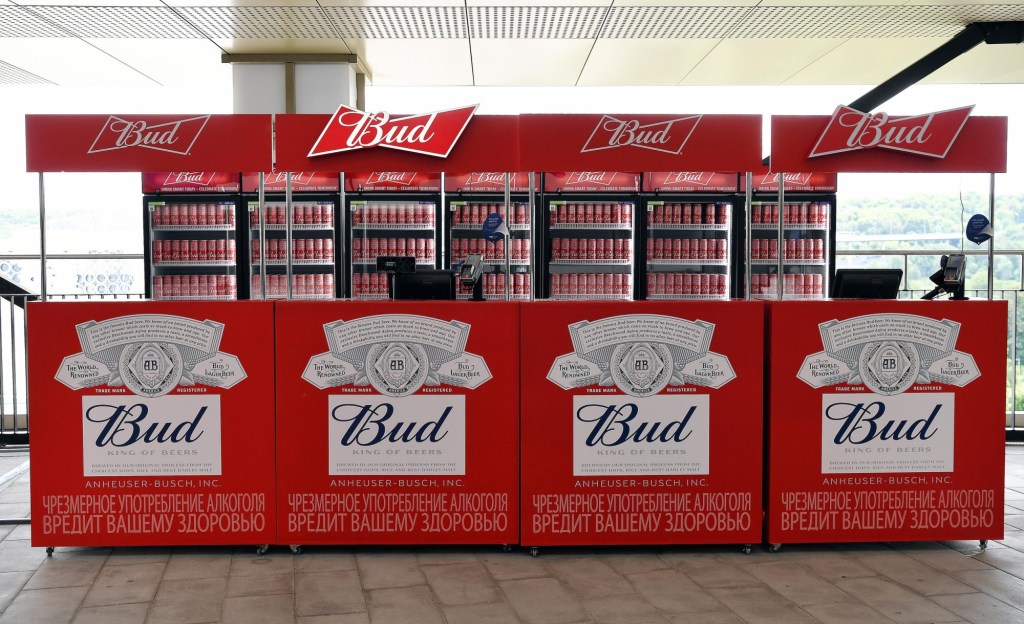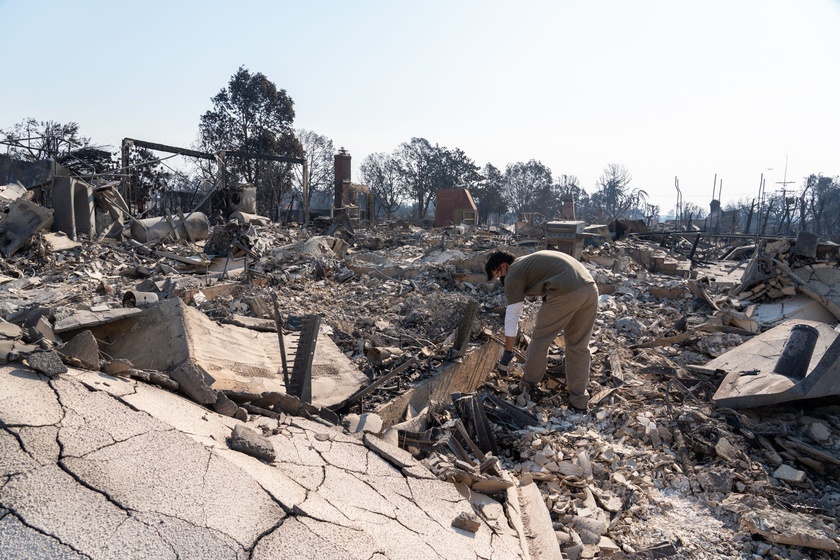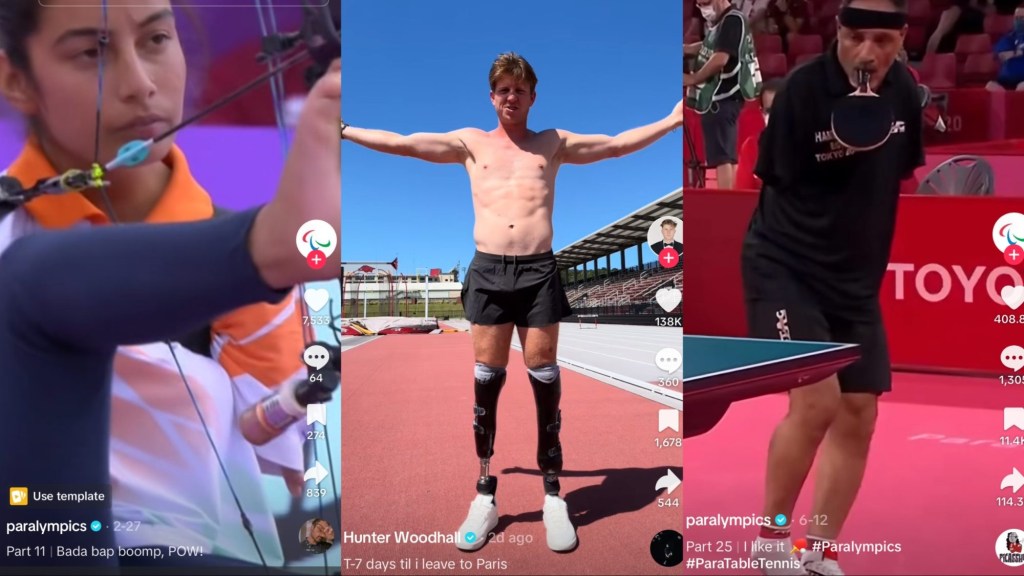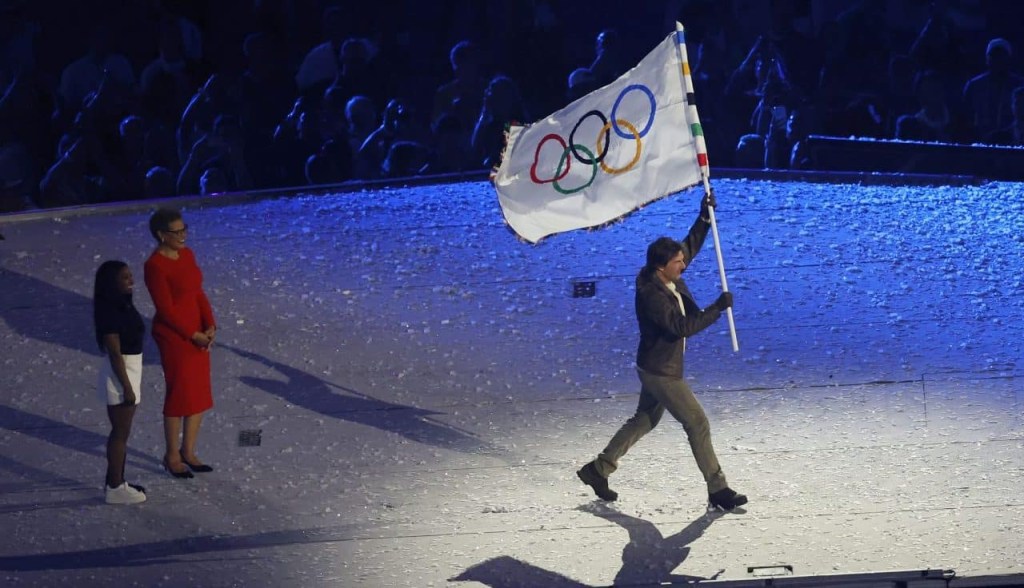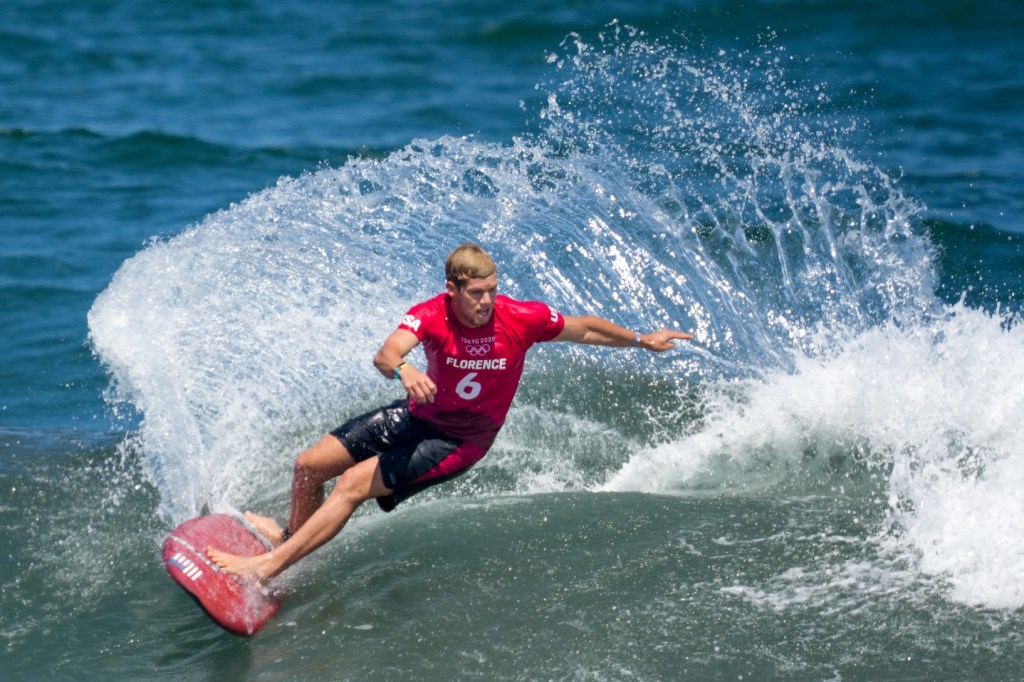Last September in Beijing, in the same venue where 15 years earlier Michael Phelps flip-turned to immortality, a few hundred Chinese officials and dignitaries gathered to assess a sport. An American creation. On this night the Beijing National Aquatics Center—known colloquially as the Water Cube—was not hosting a swimming event. Nor an Olympic event (at least it isn’t yet).
You may have already guessed: They were watching a pickleball exhibition. If pickleball is in the throes of—pardon the hyperbolics—taking over America, then China is on the cusp of—no exaggeration—taking over pickleball. “The top sports officials in China have pledged to me,” says Seymour Rifkind, a Chicago-based ambassador of the sport who organized the exhibition, “that within five years they expect to have 10,000 courts and 100 million players.”
How do those numbers compare to the U.S., where pickleball was born (in 1965 on Bainbridge Island, just across the Puget Sound from Seattle), and where upwards of 90% of its players reside? The most breathless recent report, courtesy of the Association of Pickleball Players (APP), estimates that 36 million Americans picked up a paddle at least once in 2023. No one can claim with any certainty the amount of recidivist dinkers that total would foster, but suffice it to say that China alone could have twice the number of pickleball participants as the rest of the planet by the end of the decade.
As for the court total, the U.S. already has more than 10,000 in use. However, if you have visited China, which boasts a dozen cities with larger populations than New York, you’ll appreciate that its citizenry is accustomed to densely crowded conditions.
“I visited South China Agricultural University [in Guangzhou, pop. 16 million] just before the pandemic,” says Rifkind, 73, who lives in Chicago. “A professor took me on a tour at night. The lights were on in the all-purpose gym. On the tennis courts. On the badminton courts. Everyone was playing pickleball.”
A 5.0 player himself (on a scale of 1 to 6), Rifkind says he inquired how many students attended the university. He was told 50,000. And how many play pickleball? “Twenty-five thousand,” the professor replied.
Rifkind is a well-known and somewhat polarizing figure in the acronym-laced upper atmosphere of pickleball. He is the founder of the World Pickleball Federation (WPF), one of three entities jockeying to be designated as pickleball’s international governing body. Since 2017, Rifkind, who earned his fortune in advertising, has been making pilgrimages to the Far East both to measure and promote the growth of pickleball in what heretofore has been the most fertile—but unrealized—ground for the sport’s growth simply in terms of the number of potential players. Seven of the world’s 13 most populous nations are in Asia, yet as of today roughly 98% of the world’s active players live in the U.S. or Canada.
“China wants to lead the world in pickleball,” says Rifkind, “and they have the means to do it.”
Late last summer, Rifkind found himself in Bhutan, giving pickleball demonstrations and doling out complimentary nets, paddles, and certifications—he is also the founder of the International Pickleball Teaching Professionals Association (IPTPA), a registry through which players become certified to teach. While there he received a call from Allen Zeng, the WPF’s director of global development, who was born in China and splits his time between Beijing and Seattle.
“The Chinese wanted us to come immediately and give exhibitions ahead of the Asian Games,” says Rifkind. “So I dropped everything, gathered seven pros [mostly from Australia and New Zealand], and we headed to Beijing.”
Fifty-two years earlier, in 1971, a delegation from the U.S. had journeyed to the People’s Republic of China, at the height of the Cold War, for a series of table tennis matches against Chinese players. This “ping-pong diplomacy,” as it was dubbed, helped to soothe tensions between the two superpowers and helped table tennis become a sanctioned Olympic event in 1988.
Rifkind’s pickleball proselytizers gave demonstrations in three cities in northern China: Dong Ying, Beijing, and Hebei. The last event garnered 4.8 million views on multiple online platforms, according to Rifkind. (By contrast, the most-watched pickleball event in the U.S., last November’s USA Pickleball National Championships, garnered 2.6 million; the World Series averaged 9.1 million.)
“Everywhere we went, it was a Super Bowl-like atmosphere,” says Rifkind. “Along the route to the arena, there were banners that read: WELCOME, WPF. The arenas were packed and the scoreboard read: WELCOME, CHAIRMAN SEYMOUR RIFKIND. When I entered, everyone bowed to me. It’s just unbelievable what the Chinese did.”
China’s ambitions in pickleball may only be overshadowed by those of Rifkind, a non-stop dynamo who after retiring bicycled coast-to-coast across the U.S. and competed in a few Ironmans. Rifkind founded the Pickleball Hall of Fame (or at least one of them—another story for another day) and has sojourned to more than 40 countries, often as a pickleball missionary, spreading the message of joy that the sport provided him when he picked it up in his fifties, as well as providing equipment free of charge. He introduced pickleball to Israel, among other places.
Rifkind also founded, as mentioned earlier, the IPTPA, whose certifications are obligatory for those hoping to make pickleball a career as instructors. (Another registry, under the auspices of the U.S. Tennis Association, also exists.) And that’s where, for someone such as Rifkind, who is not an equipment manufacturer, the real money is. (Program fee: $150. Annual dues: $140.)
“Seymour has some altruistic motives,” says Steve Sidwell, vice-president of the Global Pickleball Federation (GPF), a breakaway group from the International Federation of Pickleball (IFP; these are the other two organizations wrestling to oversee the sport). “He has some non-altruistic motives, too.”
That may be, but Rifkind’s September trek to China may prove a harbinger for the sport’s future. First, from a commerce perspective. Consider that, by conservative estimates, there are no less than 600 pickleball paddle brands on the market. (If you are reading this, you may be the CEO of one of them.) Almost all of those manufacturers, at the very least, source their materials in China. “If there are 850 paddle brands, then 840 of them are made in China,” Rifkind says. “Some of them may say, ‘Made In U.S.A.,’ but I was in advertising a long time. All you need is one component to be put together stateside in order to say that.”
Then there’s China’s “can do ASAP” approach, particularly when it comes to sports. While India (1.428 billion) enjoys a slight edge over China (1.425 billion) in overall population—each of which is roughly quadruple that of the U.S.—China is unrivaled when it comes to efficacy. (Something about not having to concern itself with grass-roots populism.) Witness not only that China has hosted two Olympics in the past 16 years, but that it has won 713 Olympic medals to India’s 35 all-time. Since 2000, China has not finished worse than third in the overall medal count at the Summer Games. The only nation with a better track record is, of course, the U.S.
And that is where a pickleball revolution in China could be particularly ironic. If pickleball has an Olympic future (the first realistic possibility would be at the 2032 Brisbane Games), that’s even more reason for the Chinese people to embrace it. You’ve heard people use badminton and table tennis as comparisons to pickleball? The Chinese redefined the term hegemony in terms of the Olympics in these two disciplines.
Since badminton was added to the Olympic program in 1992, China has won 20 of the 39 gold medals. In table tennis, added in ’88, that total is 32 of 37 gold medals. All together, the Chinese have won 107 of the 236 Olympic medals in badminton and table tennis—and a not insignificant number of those other medals were won by Chinese expats who found it impossible to qualify for their country’s Olympic team.
Pickleball could easily become China’s next avenue of Olympic dominion.
“The Chinese leadership embraces pickleball for two primary reasons,” says Rifkind. “First, it sees it as a healthy use of leisure time for its people. Second, it sees it as the latest means, via sport, to demonstrate that its form of government is the best in the world. Look what China has done in badminton, in table tennis, in gymnastics.”
If China makes good on its promise to have 100 million Chinese dinking and dashing in five years, the merchandising will tilt toward the Far East. So, too, may pickleball’s Olympic movement.
“We are aware of it and we are discussing it,” says the GPF’s Sidwell of China’s looming influence on the sport.
The GPF, like the WPF, believes that each nation, no matter the size of its GDP nor the number of players within its borders, should have an equal vote in terms of leadership. Tonga, one vote. China, one vote.
But, in terms of influence and in attracting the attention of the International Olympic Committee, pickleball’s China syndrome may be just the impetus the sport needs.
The irony is almost obvious. Rifkind is simply practicing good old-fashioned Yankee capitalism and imperialism: introducing a home-grown American product to a new market brimming with potential consumers. Meanwhile, China may employ pickleball to one day win even more Olympic medals, thereby—at least in the minds of Chinese officials—further demonstrating that Communism is a superior form of government. Taking that lob and smashing it for an easy winner.
John Walters has worked for the likes of Sports Illustrated, NBC Sports, The Daily, Newsweek, and The Athletic. His story, “Inside the Fight Over the Fastest-Growing Sport in America,” appeared in SI in 2022.
